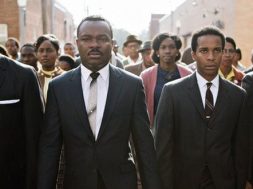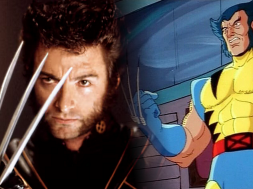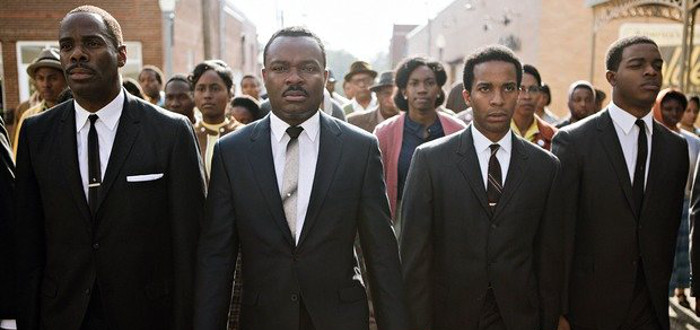
Sometimes, the numbers say it all. Despite his pivotal position as a civil rights activist across all the western world, Selma is the first theatrically released film based on Martin Luther King. In 2009, Spielberg’s Dreamworks Studios acquired the rights from the King estate to create a full biopic of the man’s life and times, but since then very little has come of the production other than confirmation that it is still on the table. As a result, Ava DuVernay’s feature has had the crux of not being allowed to contain any of Martin Luther King’s actual speeches, so Selma is not only the first time the great man is gracing the big screen, but Ava and co. have to do it all while accurately emulating the nuance and tenacity of King’s great words, 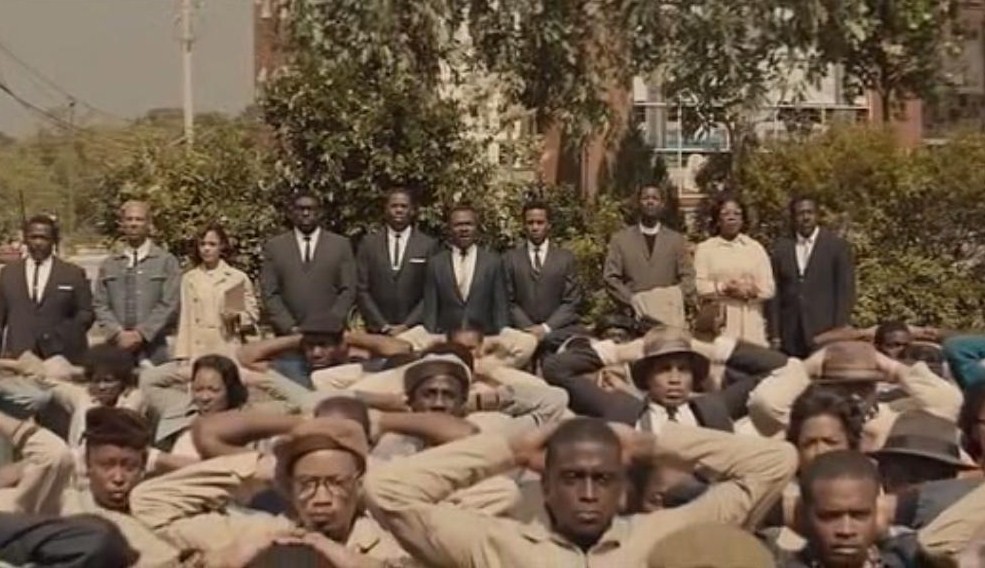 tip-toeing around the their original delivery and outline. Even with all of this hanging over him, David Oyelowo’s portrayal of the man with a dream, and Selma itself, are a staggeringly eye-opening achievement.
tip-toeing around the their original delivery and outline. Even with all of this hanging over him, David Oyelowo’s portrayal of the man with a dream, and Selma itself, are a staggeringly eye-opening achievement.
We first see Oyelowo’s King giving a gentle monologue as he fumbles with a tie, about to receive his Nobel Peace Prize in Oslo in 1964, and immediately there’s a wave of assurance that Dr. King’s likeness is in more than capable hands. Exuding warmth and tenderness as he speaks with his wife, played by Carmen Ejogo, about his concerns of image and the price of blood that has paved their path, the film then switches to the 1963 16th St. Baptist Church Bombing which saw the deaths of four young girls, making it clear the dynamic that DuVernay is using to staple the film together. Keeping the focus always on King and his comings and goings, Ava repeatedly uses his familial domain as a contrast to the war that he has brought to the doorstep of those in power, particularly President Lyndon B. Johnson, played by Tom Wlikonson, who is presented as the antagonistic barrier to King’s marching band of peaceful protest, boosted by political hound Governor George Wallace, played by Tim Roth. Continuously, DuVernay drives home that these issues start at home and spread into the community, and they start in the community and spread into the home, back and forth. For every confrontational exchange we see, there’s a wider set-piece that soon follows, showing the scope of both the bigotry and the measures to combat it.
But even with the obvious relevance that this has in today’s socio-political climate, and the connotations of the intimate versus the institutional and the intensity that comes with bridging that gap in the way King did, Selma doesn’t just rely on its message. A very poignantly framed piece of film, there’s obvious precision and careful consideration given to showing the events as they happened, even using real footage from the events to prove the authenticity. The protests in question that took place in Selma, Alabama are a benchmark in how MLK used peaceful demonstration to turn the ever-present racism on itself, providing just enough fuel for the fire to light itself, making sure all eyes were ready to see the flames. DuVernay rests just long enough on each stand off, meditating on the tension to just the right extent that at times Selma feels more like an historical slide-show with 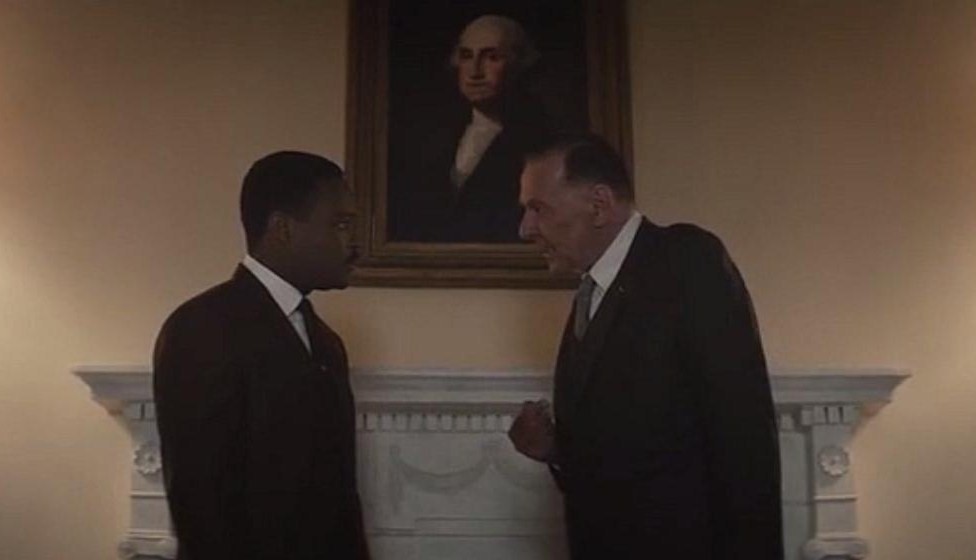 narrative tissue in between than it does a film, underpinned by Jason Moran’s score that allows the transitions a gentle sway from scene-to-scene, floating like a feather as everything unfolds.
narrative tissue in between than it does a film, underpinned by Jason Moran’s score that allows the transitions a gentle sway from scene-to-scene, floating like a feather as everything unfolds.
Martin Luther King was not a perfect man, and Selma reflects that, with some of the darkest moments of the film coming from the pressure the abuse lays on top of him and his wife but what he achieved, and more importantly what he started, is something that deserves its place in history, and further representation in our media. David Oyelowo’s depiction of Dr. King is so absolute and to the point that even his silence feels dramatic, and each speech he delivers is so filled with commanding and conviction that even though the words aren’t the same, their effect is. Selma is as much a film as it is a statement that MLK’s teachings need to be heard now, and we need to heed their wisdom. Steven Spielberg may own the rights to King’s exact words, but Ava DuVernay has put his message to screen in a way that is breath-taking to admire, and difficult to see how it could be done better.
A triumph. 10/10
